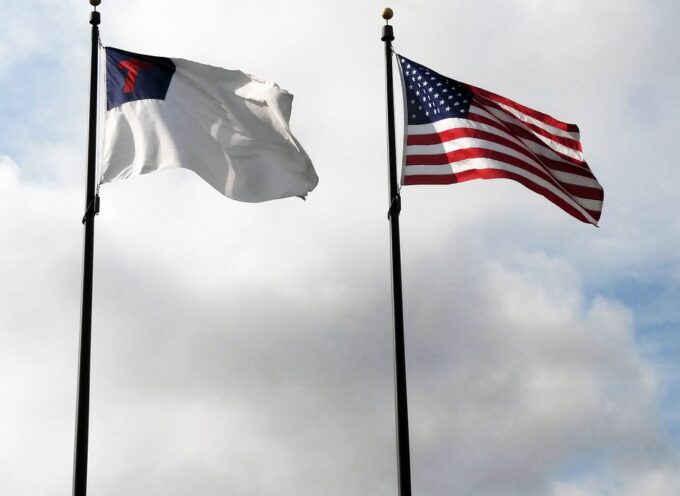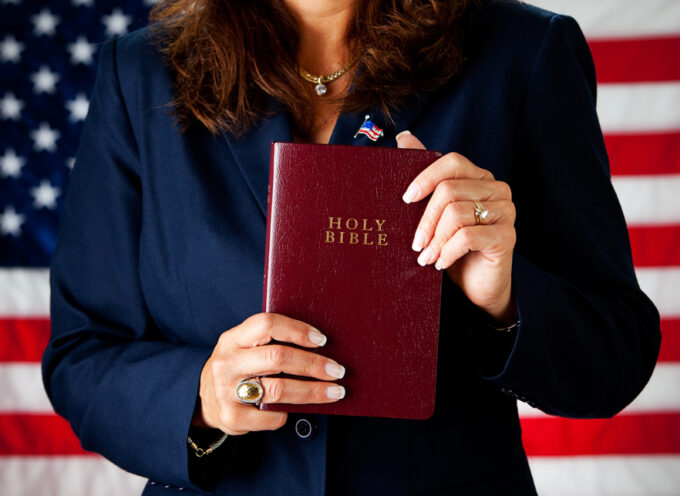On Tuesday, the U. S. Supreme Court heard oral arguments about the constitutionality of a California law that requires pro-life pregnancy support centers to advertise government-funded abortions.
During arguments for the case, NIFLA v. Becerra, the court seemed divided, with four of the justices—Breyer, Ginsburg, Kagan, and Sotomayor—signaling that the California law should be upheld, and another four—Alito, Gorsuch, Roberts, and Thomas—signaling that it should be struck down. That leaves Justice Anthony Kennedy as the swing vote.
In one significant exchange, Justice Kennedy asked California’s deputy solicitor general Joshua Klein how the California law would affect support centers who wanted to take out a two-word billboard, “CHOOSE LIFE.”
Deputy Klein admitted that, yes, the advertisement would have to include the following disclosure:
CALIFORNIA HAS PUBLIC PROGRAMS THAT PROVIDE IMMEDIATE FREE OR LOW-COST ACCESS TO COMPREHENSIVE FAMILY PLANNING SERVICES (INCLUDING ALL FDA-APPROVED METHODS OF CONTRACEPTION), PRENATAL CARE, AND ABORTION FOR ELIGIBLE WOMEN. TO DETERMINE WHETHER YOU QUALIFY, CONTACT THE COUNTY SOCIAL SERVICES AT [PHONE NUMBER].”
Kennedy replied that this application of the law would be an “undue burden on free speech.” Surprisingly, Justice Sotomayor—who seems positive toward the law in general—said that this particular application of it was “burdensome and wrong.”
Kennedy and Sotomayor are right that it is burdensome and wrong to require pregnancy support centers to include a forty-three-word pro-abortion disclosure on a two-word pro-life billboard.
Beyond that, the court should make clear that it is also burdensome and wrong to require pro-life pregnancy centers to advertise abortions in any way. To do so is to violate their freedom of speech.
Indeed, these support centers are operated by persons with pro-life convictions and whose views are vindicated by the best legal, scientific, sociological, and religious reasoning.
Is the unborn being a human person?
The central legal and scientific question is whether the unborn being is a human person deserving justice and equality. Pro-life pregnancy support centers answer that the unborn being is a human person.
Versus the pro-choice rationale that the unborn being is a part of the woman’s body, and that aborting a baby is thus similar to cutting one’s hair, modern science recognizes that the unborn being has its own unique DNA and thus is a unique human being.
Versus the pro-choice rationale that the unborn being is a parasite feeding off the mother’s body, pro-life support centers are vindicated by the fact that an embryo or fetus does not attach itself to the mother’s womb, as a parasite would, but instead is created by the father and the mother. Additionally, they often note that the “parasite” view opens the door to justifying infanticide, given the fact not only unborn babies but newborns feed off their mother’s body.
And finally, versus the U. S. Supreme Court’s pro-choice rationale that an unborn being is its mother’s property, pregnancy support centers rightly argue that it is immoral and should be unconstitutional to deny an entire class of human beings—unborn babies—the dignity they deserve. Just as other Americans are guaranteed justice and equality under the law, so should be the weakest and most vulnerable among us.
In contrast to these pro-abortion rationales, the best of modern science recognizes that the unborn being has its own unique DNA and, thus, should be considered a human being. This is the view taken by thousands of obstetricians and gynecologists as well as many healthcare organizations and medical societies.
Are abortion rights good for society?
The sociological question is whether abortion rights are, on the whole, good for society. Pro-life pregnancy support centers answer that they are bad for society.
The sociological rationale is outlined nowhere better than “The America We Seek: A Statement of Pro-Life Principle and Concern,” (TAWS) a collaborative document produced by experts in law, psychology, medicine, and philosophy.
In that document, it is recognized, first of all, that abortion hurts the baby. Modern science demonstrates with clarity that the baby feels pain. The authors of TAWS write, “The unborn child in America today enjoys less legal protection than an endangered species of bird in a national forest.”
America’s abortion laws also hurt men, women, and families by encouraging male irresponsibility and predatory sexual behavior and signaling that it is morally acceptable for women to employ lethal violence against an innocent human being.
This normalization of lethal violence, in turn, erodes our nation’s moral foundations and numbs our collective conscience. As Harvard Law Professor Mary Ann Glendon wrote about the consequences of Roe v. Wade, “There is growing awareness that the moral ecology of the country has suffered something like an environmental disaster, and that we are faced with a very complicated cleanup operation.”
It further harms society by minimizing our nation’s mediating institutions. Abortion-on-demand assumes that an individual—the mother—has the right to take her baby’s life without the consent of the father or the baby’s siblings. Thus, our nation lurches even further toward a situation in which the only actors of consequence are the overweening state and the isolated individual.
Finally, the legalization of abortion also undermines justice and equality and thus our claim to be a law-governed democracy. Lethal violence against an innocent unborn being should not be a matter of choice any more than lethal violence against newborn babies, adolescents, or elderly people. In fact, a good society is one that works hardest to protect the weakest and most vulnerable among us.
What role do religious convictions play?
In addition to legal, scientific, and sociological rationales, many pregnancy support centers are funded and staffed by persons with deeply-held Christian convictions.
They adhere to the historic Christian faith, which teaches that God creates all human beings—including unborn babies—in his image and likeness (Gen 1:26; Ps. 139:13-14), consecrates unborn babies for service while they is still in the womb (Lk 1:41) and values unborn babies on par with adults (Ex. 21:22-25). Thus, the Bible’s injunctions against the killing of innocents applies to unborn babies (Ex. 20:13).
The America We Seek
Given the scientific fact that an unborn being is a human being with its own unique DNA, the Constitutional fact that America is constituted as a law-governed democratic republic with justice and equality for all, and the considerable sociological evidence that legalized abortion is bad for society, Americans should hope that the Supreme Court eventually overturns legalized abortion.
Until then, we can make incremental progress through cases such as NIFLA v. Becerra. If the Court majority upholds the First Amendment by striking down a law that forces pregnancy support centers to promote a message that violates their deeply held convictions, the Court bolsters the very right to speech that might one day allow for the reform of America’s unconstitutional and immoral abortion laws.
Subscribe
Never miss a post! Have all new posts delivered straight to your inbox.








More than ever, I suspect that such outrages as the California law in question are products of a well-organized semi-covert conspiracy or movement whose objective is to cause a significant decrease in world population. The public face of this movement is Agenda 21, a non-binding action plan of the United Nations with regard to “sustainable development.” (The United States is a signatory nation to this “action plan,” which because it is “non-binding” was never ratified as a treaty by the Senate.) A key component of Agenda 21 is population control, promoted using various euphemisms. We see the results in the “one-child” social policy of China, and birth control and sterilization programs elsewhere. In our own country, we have seen various attacks on the family structure, the elevation of homosexuality and transgenderism, and the economic and societal pressures for women to enter the workplace. There is good reason to suppose that even more sinister means are being employed, especially in the Third World. Evidence has surfaced that disease-vaccination programs in Africa have employed inoculations that also cause sterility in women receiving them.
And what about the sudden emergence of HIV and Ebola? That’s a topic I’m not even going to explore here. Suffice it to say that globalist Henry Kissinger has been quoted as saying that world population should be reduced by 50%, and that depopulation “should be the highest priority of foreign policy towards the third world, because the US economy will require large and increasing amounts of minerals from abroad, especially from less developed countries.”
Is it unreasonable to see this California law as piece and part of this larger whole, being implemented by secret and/or coercive means by a global elite without the informed consent of the people? Will our Supreme Court protect our rights, when it has more than once seemed to be advancing the global agenda I have postulated? Please forgive me if I’m less than optimistic about our chances.
Roger,
I don’t see it as unreasonable at all that there are many global power brokers who don’t like “breeders,” i.e. couples who have more than one child. There are open arguments now that children are bad for the Earth, and therefore it is incumbent on us to stop having children. For example: https://www.nbcnews.com/think/opinion/science-proves-kids-are-bad-earth-morality-suggests-we-stop-ncna820781
That said, I think the California law is also the result of libertarianism-gone-awry. It wants individuals to be as unencumbered by social and moral norms as possible, and for many libertarians of the Left (though usually not libertarians of the Right), that means we should be unencumbered by laws that would keep us from taking the life of the weakest and most vulnerable among us.
BA
The NBC News item you cited is typical Deep State propaganda. The Bilderbergers, Trilateral Commission members and Council on Foreign Relations wonks who like to see such ideas proclaimed to the masses typically have huge “carbon footprints” themselves, with their big houses, yachts and corporate jets. And yet, the brilliant Elon Musk recently expressed grave concern about the population “bust” in the developed nations, seeing a potential for actual societal collapse.
Many of the “1 Percent” are heavily invested in the obsolescent, polluting fossil fuel industries, and in impeding any transition to clean solar, wind, and–potentially–“zero point” energy sources.
A just society utilizing clean energy resources and committed to maximizing opportunities for its citizens to achieve their potential could view each newborn child as a treasure and an opportunity, rather than as a new “carbon footprint” and drain upon resources. In such a society, women would be far less likely to seek abortions. Unfortunately, our own country appears headed in the opposite direction.